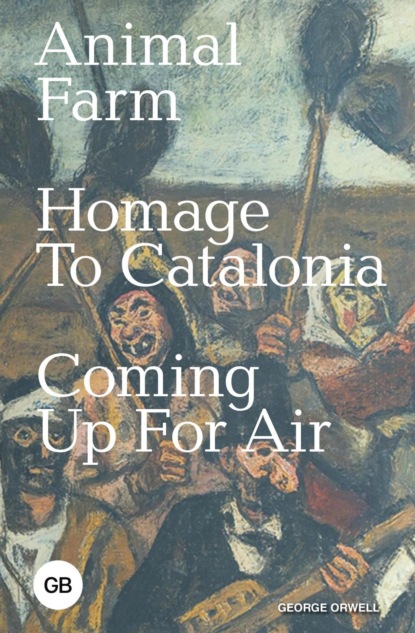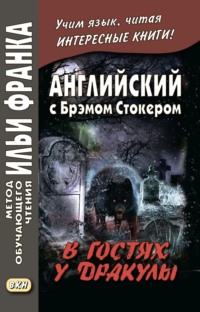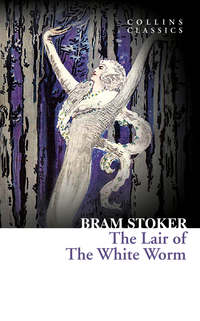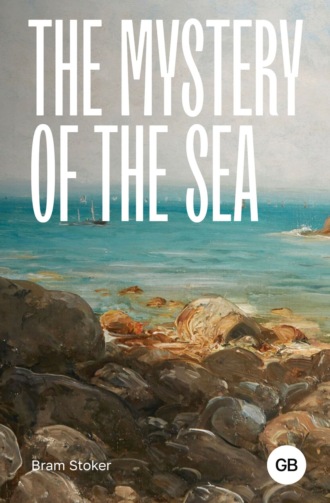
Полная версия
The Mystery of the Sea / Тайна моря

Брэм Стокер
The Mystery of the Sea / Тайна моря
© ООО «Издательство АСТ», 2024
TO DAISY GILBEY RIVIERE OF THE THIRD GENERATION OF LOVING AND LOYAL FRIENDS

“To win the mystery o' the sea,“An' learn the secrets that there be,“Gather in ane these weirds three:“A gowden moon on a flowin' tide;“An' Lammas floods for the spell to bide;“An' a gowden mon wi death for his bride.”[Gaelic verse and English translation.]
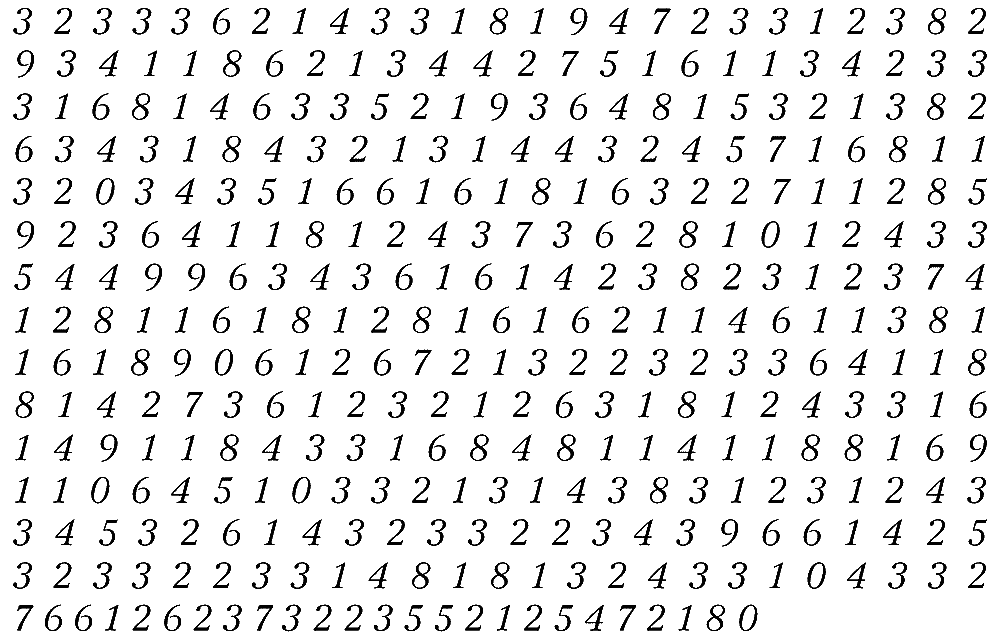
Chapter I. Second Sight
I had just arrived at Cruden Bay on my annual visit, and after a late breakfast was sitting on the low wall which was a continuation of the escarpment of the bridge over the Water of Cruden. Opposite to me, across the road and standing under the only little clump of trees in the place was a tall, gaunt old woman, who kept looking at me intently. As I sat, a little group, consisting of a man and two women, went by. I found my eyes follow them, for it seemed to me after they had passed me that the two women walked together and the man alone in front carrying on his shoulder a little black box-a coffin. I shuddered as I thought, but a moment later I saw all three abreast just as they had been. The old woman was now looking at me with eyes that blazed. She came across the road and said to me without preface:
“What saw ye then, that yer e'en looked so awed?” I did not like to tell her so I did not answer. Her great eyes were fixed keenly upon me, seeming to look me through and through. I felt that I grew quite red, whereupon she said, apparently to herself: “I thocht so! Even I did not see that which he saw.”
“How do you mean?” I queried. She answered ambiguously: “Wait! Ye shall perhaps know before this hour to-morrow!”
Her answer interested me and I tried to get her to say more; but she would not. She moved away with a grand stately movement that seemed to become her great gaunt form.
After dinner whilst I was sitting in front of the hotel, there was a great commotion in the village; much running to and fro of men and women with sad mien. On questioning them I found that a child had been drowned in the little harbour below. Just then a woman and a man, the same that had passed the bridge earlier in the day, ran by with wild looks. One of the bystanders looked after them pityingly as he said:
“Puir souls. It's a sad home-comin' for them the nicht.”
“Who are they?” I asked. The man took off his cap reverently as he answered:
“The father and mother of the child that was drowned!” As he spoke I looked round as though some one had called me.
There stood the gaunt woman with a look of triumph on her face.
*****The curved shore of Cruden Bay, Aberdeenshire, is backed by a waste of sandhills in whose hollows seagrass and moss and wild violets, together with the pretty “grass of Parnassus” form a green carpet. The surface of the hills is held together by bent-grass and is eternally shifting as the wind takes the fine sand and drifts it to and fro. All behind is green, from the meadows that mark the southern edge of the bay to the swelling uplands that stretch away and away far in the distance, till the blue mist of the mountains at Braemar sets a kind of barrier. In the centre of the bay the highest point of the land that runs downward to the sea looks like a miniature hill known as the Hawklaw; from this point onward to the extreme south, the land runs high with a gentle trend downwards.
Cruden sands are wide and firm and the sea runs out a considerable distance. When there is a storm with the wind on shore the whole bay is a mass of leaping waves and broken water that threatens every instant to annihilate the stake-nets which stretch out here and there along the shore. More than a few vessels have been lost on these wide stretching sands, and it was perhaps the roaring of the shallow seas and the terror which they inspired which sent the crews to the spirit room and the bodies of those of them which came to shore later on, to the churchyard on the hill.
If Cruden Bay is to be taken figuratively as a mouth, with the sand hills for soft palate, and the green Hawklaw as the tongue, the rocks which work the extremities are its teeth. To the north the rocks of red granite rise jagged and broken. To the south, a mile and a half away as the crow flies, Nature seems to have manifested its wildest forces. It is here, where the little promontory called Whinnyfold juts out, that the two great geological features of the Aberdeen coast meet. The red sienite of the north joins the black gneiss of the south. That union must have been originally a wild one; there are evidences of an upheaval which must have shaken the earth to its centre. Here and there are great masses of either species of rock hurled upwards in every conceivable variety of form, sometimes fused or pressed together so that it is impossible to say exactly where gneiss ends or sienite begins; but broadly speaking here is an irregular line of separation. This line runs seawards to the east and its strength is shown in its outcrop. For half a mile or more the rocks rise through the sea singly or in broken masses ending in a dange-rous cluster known as “The Skares” and which has had for centuries its full toll of wreck and disaster. Did the sea hold its dead where they fell, its floor around the Skares would be whitened with their bones, and new islands could build themselves with the piling wreckage. At times one may see here the ocean in her fiercest mood; for it is when the tempest drives from the south-east that the sea is fretted amongst the rugged rocks and sends its spume landwards. The rocks that at calmer times rise dark from the briny deep are lost to sight for moments in the grand onrush of the waves. The seagulls which usually whiten them, now flutter around screaming, and the sound of their shrieks comes in on the gale almost in a continuous note, for the single cries are merged in the multitudinous roar of sea and air.
The village, squatted beside the emboucher of the Water of Cruden at the northern side of the bay is simple enough; a few rows of fishermen's cottages, two or three great red-tiled drying-sheds nestled in the sand-heap behind the fishers' houses. For the rest of the place as it was when first I saw it, a little lookout beside a tall flagstaff on the northern cliff, a few scattered farms over the inland prospect, one little hotel down on the western bank of the Water of Cruden with a fringe of willows protecting its sunk garden which was always full of fruits and flowers.
From the most southern part of the beach of Cruden Bay to Whinnyfold village the distance is but a few hundred yards; first a steep pull up the face of the rock; and then an even way, beside part of which runs a tiny stream. To the left of this path, going towards Whinnyfold, the ground rises in a bold slope and then falls again all round, forming a sort of wide miniature hill of some eighteen or twenty acres. Of this the southern side is sheer, the black rock dipping into the waters of the little bay of Whinnyfold, in the centre of which is a picturesque island of rock shelving steeply from the water on the northern side, as is the tendency of all the gneiss and granite in this part. But to east and north there are irregular bays or openings, so that the furthest points of the promontory stretch out like fingers. At the tips of these are reefs of sunken rock falling down to deep water and whose existence can only be suspected in bad weather when the rush of the current beneath sends up swirling eddies or curling masses of foam. These little bays are mostly curved and are green where falling earth or drifting sand have hidden the outmost side of the rocks and given a foothold to the seagrass and clover. Here have been at some time or other great caves, now either fallen in or silted up with sand, or obliterated with the earth brought down in the rush of surface-water in times of long rain. In one of these bays, Broad Haven, facing right out to the Skares, stands an isolated pillar of rock called locally the “Puir mon” through whose base, time and weather have worn a hole through which one may walk dryshod.
Through the masses of rocks that run down to the sea from the sides and shores of all these bays are here and there na-tural channels with straight edges as though cut on purpose for the taking in of the cobbles belonging to the fisher folk of Whinnyfold.
When first I saw the place I fell in love with it. Had it been possible I should have spent my summer there, in a house of my own, but the want of any place in which to live forbade such an opportunity. So I stayed in the little hotel, the Kilmarnock Arms.
The next year I came again, and the next, and the next. And then I arranged to take a feu at Whinnyfold and to build a house overlooking the Skares for myself. The details of this kept me constantly going to Whinnyfold, and my house to be was always in my thoughts.
Hitherto my life had been an uneventful one. At school I was, though secretly ambitious, dull as to results. At College I was better off, for my big body and athletic powers gave me a certain position in which I had to overcome my natural shyness. When I was about eight and twenty I found myself nominally a barrister, with no knowledge whatever of the practice of law and but little less of the theory, and with a commission in the Devil's Own-the irreverent name given to the Inns of Court Volunteers. I had few relatives, but a comfortable, though not great, fortune; and I had been round the world, dilettante fashion.
Chapter II. Gormala
All that night I thought of the dead child and of the peculiar vision which had come to me. Sleeping or waking it was all the same; my mind could not leave the parents in procession as seen in imagination, or their distracted mien in reality. Mingled with them was the great-eyed, aquiline-featured, gaunt old woman who had taken such an interest in the affair, and in my part of it. I asked the landlord if he knew her, since, from his position as postmaster he knew almost everyone for miles around. He told me that she was a stranger to the place. Then he added:
“I can't imagine what brings her here. She has come over from Peterhead two or three times lately; but she doesn't seem to have anything at all to do. She has nothing to sell and she buys nothing. She's not a tripper, and she's not a beggar, and she's not a thief, and she's not a worker of any sort. She's a queer-looking lot anyhow. I fancy from her speech that she's from the west; probably from some of the far-out islands. I can tell that she has the Gaelic from the way she speaks.”
Later on in the day, when I was walking on the shore near the Hawklaw, she came up to speak to me. The shore was quite lonely, for in those days it was rare to see anyone on the beach except when the salmon fishers drew their nets at the ebbing tide. I was walking towards Whinnyfold when she came upon me silently from behind. She must have been hidden among the bent-grass of the sandhills for had she been anywhere in view I must have seen her on that desolate shore. She was evidently a most imperious person; she at once addressed me in a tone and manner which made me feel as though I were in some way an inferior, and in somehow to blame:
“What for did ye no tell me what ye saw yesterday?” Instinctively I answered:
“I don't know why. Perhaps because it seemed so ridiculous.” Her stern features hardened into scorn as she replied:
“Are Death and the Doom then so redeekulous that they pleasure ye intil silence?” I somehow felt that this was a little too much and was about to make a sharp answer, when suddenly it struck me as a remarkable thing that she knew already. Filled with surprise I straightway asked her:
“Why, how on earth do you know? I told no one.” I stopped for I felt all at sea; there was some mystery here which I could not fathom. She seemed to read my mind like an open book, for she went on looking at me as she spoke, searchingly and with an odd smile.
“Eh! laddie, do ye no ken that ye hae een that can see? Do ye no understand that ye hae een that can speak? Is it that one with the Gift o' Second Sight has no an understandin' o' it. Why, yer face when ye saw the mark o' the Doom, was like a printed book to een like mine.”
“Do you mean to tell me” I asked “that you could tell what I saw, simply by looking at my face?”
“Na! na! laddie. Not all that, though a Seer am I; but I knew that you had seen the Doom! It's no that varied that there need be any mistake. After all Death is only one, in whatever way we may speak!” After a pause of thought I asked her:
“If you have the power of Second Sight why did you not see the vision, or whatever it was, yourself?”
“Eh! laddie” she answered, shaking her head “'Tis little ye ken o' the wark o' the Fates! Learn ye then that the Voice speaks only as it listeth into chosen ears, and the Vision comes only to chosen een. None can will to hear or to see, to pleasure themselves.”
“Then” I said, and I felt that there was a measure of triumph in my tone “if to none but the chosen is given to know, how comes it that you, who seem not to have been chosen on this occasion at all events, know all the same?” She answered with a touch of impatience:
“Do ye ken, young sir, that even mortal een have power to see much, if there be behind them the thocht, an' the knowledge and the experience to guide them aright. How, think ye, is it that some can see much, and learn much as they gang; while others go blind as the mowdiwart, at the end o' the journey as before it?”
“Then perhaps you will tell me how much you saw, and how you saw it?”
“Ah! to them that have seen the Doom there needs but sma' guidance to their thochts. Too lang, an' too often hae I mysen seen the death-sark an' the watch-candle an' the dead-hole, not to know when they are seen tae ither een. Na, na! laddie, what I kent o' yer seein' was no by the Gift but only by the use o' my proper een. I kent not the muckle o' what ye saw. Not whether it was ane or ither o' the garnishins o' the dead; but weel I kent that it was o' death.”
“Then,” I said interrogatively “Second Sight is altogether a matter of chance?”
“Chance! chance!” she repeated with scorn. “Na! young sir; when the Voice has spoken there is no more chance than that the nicht will follow the day.”
“You mistake me,” I said, feeling somewhat superior now that I had caught her in an error, “I did not for a moment mean that the Doom-whatever it is-is not a true forerunner. What I meant was that it seems to be a matter of chance in whose ear the Voice-whatever it is-speaks; when once it has been ordained that it is to sound in the ear of some one.” Again she answered with scorn:
“Na, na! there is no chance o' ocht aboot the Doom. Them that send forth the Voice and the Seein' know well to whom it is sent and why. Can ye no comprehend that it is for no bairn-play that such goes forth. When the Voice speaks, it is mainly followed by tears an' woe an' lamentation! Nae! nor is it only one bit manifestation that stands by its lanes, remote and isolate from all ither. Truly 'tis but a pairt o' the great scheme o' things; an' be sure that whoso is chosen to see or to hear is chosen weel, an' must hae their pairt in what is to be, on to the verra end.”
“Am I to take it” I asked, “that Second Sight is but a little bit of some great purpose which has to be wrought out by means of many kinds; and that whoso sees the Vision or hears the Voice is but the blind unconscious instrument of Fate?”
“Aye! laddie. Weel eneuch the Fates know their wishes an' their wark, no to need the help or the thocht of any human-blind or seein', sane or silly, conscious or unconscious.”
All through her speaking I had been struck by the old woman's use of the word 'Fate,' and more especially when she used it in the plural. It was evident that, Christian though she might be-and in the West they are generally devout observants of the duties of their creed-her belief in this respect came from some of the old pagan mythologies. I should have liked to question her on this point; but I feared to shut her lips against me. Instead I asked her:
“Tell me, will you, if you don't mind, of some case you have known yourself of Second Sight?”
“'Tis no for them to brag or boast to whom has been given to see the wark o' the hand o' Fate. But sine ye are yerself a Seer an' would learn, then I may speak. I hae seen the sea ruffle wi'oot cause in the verra spot where later a boat was to gang doon, I hae heard on a lone moor the hammerin' o' the coffinwright when one passed me who was soon to dee. I hae seen the death-sark fold round the speerit o' a drowned one, in baith ma sleepin' an' ma wakin' dreams. I hae heard the settin' doom o' the Spaiks, an' I hae seen the Weepers on a' the crood that walked. Aye, an' in mony anither way hae I seen an' heard the Coming o' the Doom.”
“But did all the seeings and hearings come true?” I asked. “Did it ever happen that you heard queer sounds or saw strange sights and that yet nothing came of them? I gather that you do not always know to whom something is going to happen; but only that death is coming to some one!” She was not displeased at my questioning but replied at once:
“Na doot! but there are times when what is seen or heard has no manifest following. But think ye, young sir, how mony a corp, still waited for, lies in the depths o' the sea; how mony lie oot on the hillsides, or are fallen in deep places where their bones whiten unkent. Nay! more, to how many has Death come in a way that men think the wark o' nature when his hastening has come frae the hand of man, untold.” This was a difficult matter to answer so I changed or rather varied the subject.
“How long must elapse before the warning comes true?”
“Ye know yersel', for but yestreen ye hae seen, how the Death can follow hard upon the Doom; but there be times, nay mostly are they so, when days or weeks pass away ere the Doom is fulfilled.”
“Is this so?” I asked “when you know the person regarding whom the Doom is spoken.” She answered with an air of certainty which somehow carried conviction, secretly, with it.
“Even so! I know one who walks the airth now in all the pride o' his strength. But the Doom has been spoken of him. I saw him with these verra een lie prone on rocks, wi' the water rinnin' down from his hair. An' again I heard the minute bells as he went by me on a road where is no bell for a score o' miles. Aye, an' yet again I saw him in the kirk itsel' wi' corbies flyin' round him, an' mair gatherin' from afar!”
Here was indeed a case where Second Sight might be tested; so I asked her at once, though to do so I had to overcome a strange sort of repugnance:
“Could this be proved? Would it not be a splendid case to make known; so that if the death happened it would prove beyond all doubt the existence of such a thing as Second Sight.” My suggestion was not well received. She answered with slow scorn:
“Beyon' all doot! Doot! Wha is there that doots the bein' o' the Doom? Learn ye too, young sir, that the Doom an' all thereby is no for traffickin' wi' them that only cares for curiosity and publeecity. The Voice and the Vision o' the Seer is no for fine madams and idle gentles to while away their time in play-toy make-believe!” I climbed down at once.
“Pardon me!” I said “I spoke without thinking. I should not have said so-to you at any rate.” She accepted my apology with a sort of regal inclination; but the moment after she showed by her words she was after all but a woman!
“I will tell ye; that so in the full time ye may hae no doot yersel'. For ye are a Seer and as Them that has the power hae gien ye the Gift it is no for the like o' me to cumber the road o' their doin'. Know ye then, and remember weel, how it was told ye by Gormala MacNiel that Lauchlane Macleod o' the Outer Isles hae been Called; tho' as yet the Voice has no sounded in his ears but only in mine. But ye will see the time-”
She stopped suddenly as though some thought had struck her, and then went on impressively:
“When I saw him lie prone on the rocks there was ane that bent ower him that I kent not in the nicht wha it was, though the licht o' the moon was around him. We shall see! We shall see!”
Without a word more she turned and left me. She would not listen to my calling after her; but with long strides passed up the beach and was lost among the sandhills.
Chapter III. An Ancient Rune
On the next day I rode on my bicycle to Peterhead, and walked on the pier. It was a bright clear day, and a fresh northern breeze was blowing. The fishing boats were ready to start at the turn of the tide; and as I came up the first of them began to pass out through the harbour mouth. Their movement was beautiful to see; at first slowly, and then getting faster as the sails were hoisted, till at last they swept through the narrow entrance, scuppers under, righting themselves as they swung before the wind in the open sea. Now and again a belated smacksman came hurrying along to catch his boat before she should leave the pier.
The eastern pier of Peterhead is guarded by a massive wall of granite, built in several steps or tiers, which breaks the fury of the gale. When a northern storm is on, it is a wild spot; the waves dash over it in walls of solid green topped with mountainous masses of foam and spray. But at present, with the July sun beating down, it was a vantage post from which to see the whole harbour and the sea without. I climbed up and sat on the top, looking on admiringly, and lazily smoked in quiet enjoyment. Presently I noticed some one very like Gormala come hurrying along the pier, and now and again crouching behind one of the mooring posts. I said nothing but kept an eye on her, for I supposed that she was at her usual game of watching some one.
Soon a tall man strode leisurely along, and from every movement of the woman I could see that he was the subject of her watching. He came near where I sat, and stood there with that calm unconcerned patience which is a characteristic of the fisherman.
He was a fine-looking fellow, well over six feet high, with a tangled mass of thick red-yellow hair and curly, bushy beard. He had lustrous, far-seeing golden-brown eyes, and massive, finely-cut features. His pilot-cloth trousers spangled all over with silver herring scales, were tucked into great, bucketboots. He wore a heavy blue jersey and a cap of weazel skin. I had been thinking of the decline of the herring from the action of the trawlers in certain waters, and fancied this would be a good opportunity to get a local opinion. Before long I strolled over and joined this son of the Vikings. He gave it, and it was a decided one, uncompromisingly against the trawlers and the laws which allowed them to do their nefarious work. He spoke in a sort of old-fashioned, biblical language which was moderate and devoid of epithets, but full of apposite illustration. When he had pointed out that certain fishing grounds, formerly most prolific of result to the fishers, were now absolutely worthless he ended his argument:
“And, sure, good master, it stands to rayson. Suppose you be a farmer, and when you have prepared your land and manured it, you sow your seed and plough the ridges and make it all safe from wind and devastatin' storm. If, when the green corn be shootin' frae the airth, you take your harrow and drag it ath'art the springin' seed, where be then the promise of your golden grain?”
For a moment or two the beauty of his voice, the deep, resonant, earnestness of his tone and the magnificent, simple purity of the man took me away from the scene. He seemed as though I had looked him through and through, and had found him to be throughout of golden worth. Possibly it was the imagery of his own speech and the colour which his eyes and hair and cap suggested, but he seemed to me for an instant as a small fi-gure projected against a background of rolling upland clothed in ripe grain. Round his feet were massed the folds of a great white sheet whose edges faded into air. In a moment the image passed, and he stood before me in his full stature.
I almost gasped, for just behind him, where she had silently come, stood Gormala, gazing not at the fisherman but at me, with eyes that positively blazed with a sort of baleful eagerness. She was looking straight into my eyes; I knew it when I caught the look of hers.




